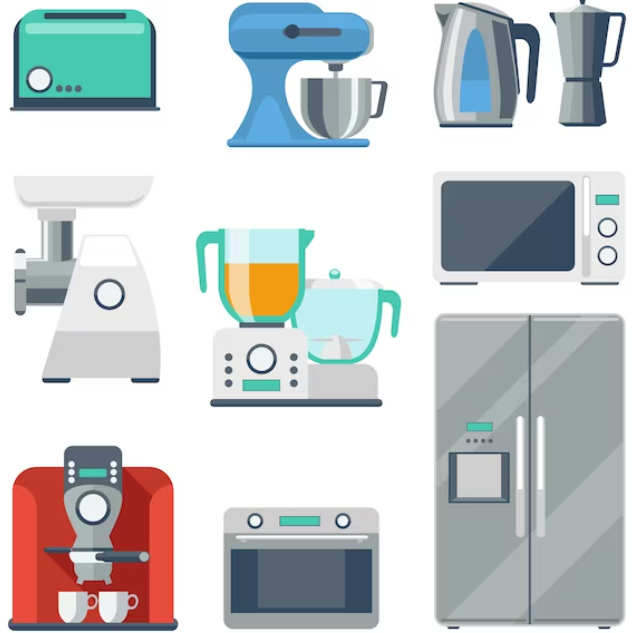
The new frontier in e-commerce with an online appliance shop in the Philippines provides promising opportunities for entrepreneurs. Nevertheless, despite the digital growth potential, there are peculiar problems that require a thoughtful approach and careful planning. This guide discusses problems that are faced in the process of setting up an online appliance store in the Philippines and provides a list of strategies to overcome these challenges.
Targeting marketing efforts to the local culture and preferences, as well as interacting with customers on a personalized level while providing great customer service can also help strengthen brand loyalty by creating more lasting relationships. The online appliance stores can remain relevant and be poised for growth through the adoption of strategies that align with their needs and expectations in order to thrive as a business entity within this dynamic e-commerce landscape.
Competitive Market Landscape
The e-commerce sector in the Philippines is characterized by intense competition, with numerous online retailers vying for market share. Established players and new entrants alike face the challenge of standing out in a crowded marketplace, where price, product selection, and customer experience play pivotal roles in success.
Strategy: To carve out a niche in the competitive landscape, online appliance stores must focus on differentiation and value proposition. This could involve offering unique product lines, exclusive deals, or specialized services such as expert advice on appliance selection and installation. Additionally, investing in robust digital marketing strategies, including search engine optimization (SEO), social media marketing, and influencer partnerships, can help increase brand visibility and attract customers in a crowded market.
Logistics and Fulfillment Challenges
Efficient logistics and fulfillment operations are critical for the success of any online appliance store. In the Philippines, logistical challenges such as island geography, traffic congestion, and infrastructure limitations can pose significant hurdles to timely delivery and customer satisfaction.
Strategy: Implementing a comprehensive logistics strategy tailored to the Philippine context is essential for overcoming these challenges. This may involve partnering with reputable third-party logistics providers with expertise in local delivery networks and last-mile delivery solutions. Additionally, leveraging technology such as route optimization software and real-time tracking systems can streamline logistics operations, improve delivery accuracy, and enhance the overall customer experience.
Payment and Fraud Prevention
Ensuring secure payment transactions and protecting against online fraud is paramount for online appliance stores operating in the Philippines. With the growing prevalence of cyber threats and fraudulent activities, building trust and confidence among customers is crucial for driving sales and fostering long-term relationships.
Strategy: Implementing robust payment processing systems with multiple secure payment options is key to accommodating diverse customer preferences and reducing cart abandonment rates. Additionally, integrating advanced fraud prevention measures such as address verification, card security codes, and transaction monitoring can help mitigate the risk of fraudulent transactions and safeguard sensitive customer information. Building trust through transparent policies, secure checkout processes, and responsive customer support can further reassure customers and instill confidence in the online shopping experience.
Localized Marketing and Customer Engagement
Understanding the unique preferences and behaviors of Filipino consumers is essential for effective marketing and customer engagement strategies. Generic approaches may fail to resonate with the local audience, leading to suboptimal results and missed opportunities for growth.
Strategy: Adopting a localized approach to marketing and customer engagement is crucial for online appliance stores targeting the Philippine market. This could involve tailoring marketing campaigns and promotional activities to reflect local culture, traditions, and seasonal trends. Engaging with customers through localized content, language-specific communication channels, and culturally relevant messaging can help foster deeper connections and build brand loyalty within the Filipino community.
Conclusion
The Philippines e-commerce industry is a favorable environment for entrepreneurs who want to start an online appliance store due to the country’s growing digital economy and consumer base. On the other hand, achieving success in this competitive field is a matter that needs to be taken into consideration as several factors are involved. It is crucial to address the critical issues in competition with established players and newcomers, logistic complications, payment security concerns, as well as localization. Strategically coming up with strategies to distinguish themselves, improve operations and focus on trust and satisfaction from customers online appliance stores can find a way out of the competitive market.
Logistics and fulfillment present major challenges for online appliance stores in the Philippines due to its peculiar geographical features, as well as poor infrastructure. The challenges in navigating island geography, traffic congestion and last-mile delivery issues require new solutions that can be implemented through strategic partnerships with efficient logistics providers. Incorporating cutting-edge logistics technologies and streamlining delivery routes helps increase efficiency and meet orders promptly, leading to a better customer experience that attracts repeat business. Through logistics excellence, online appliance stores can overcome physical boundaries and serve customers throughout the country with efficiency.
Additionally, establishing a trust and confidence among Filipino consumers is crucial to the success of online appliance shops. These include ensuring the presence of strong payment security measures, a variety of options for making payments available to consumers and maintaining an open line of communication.








